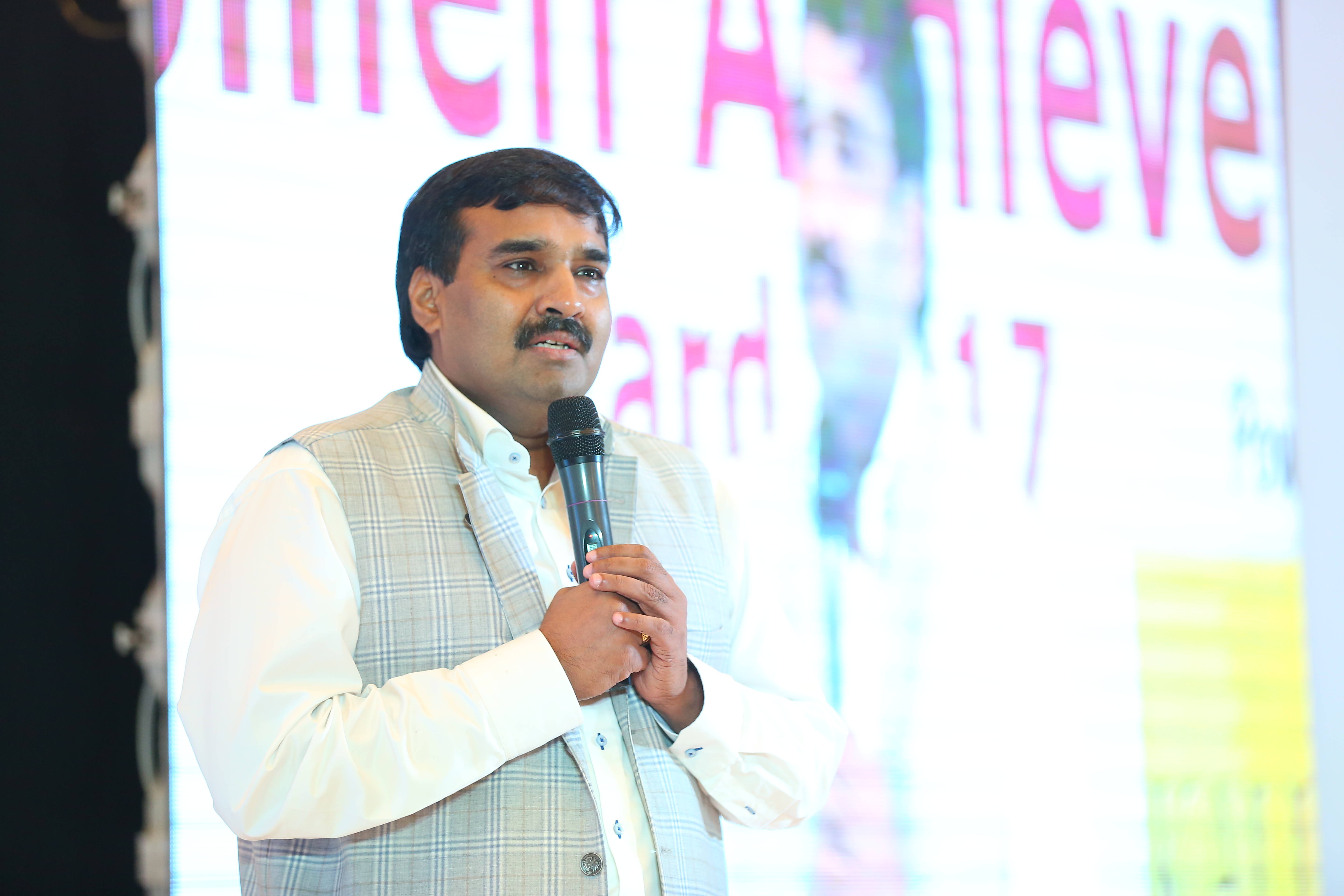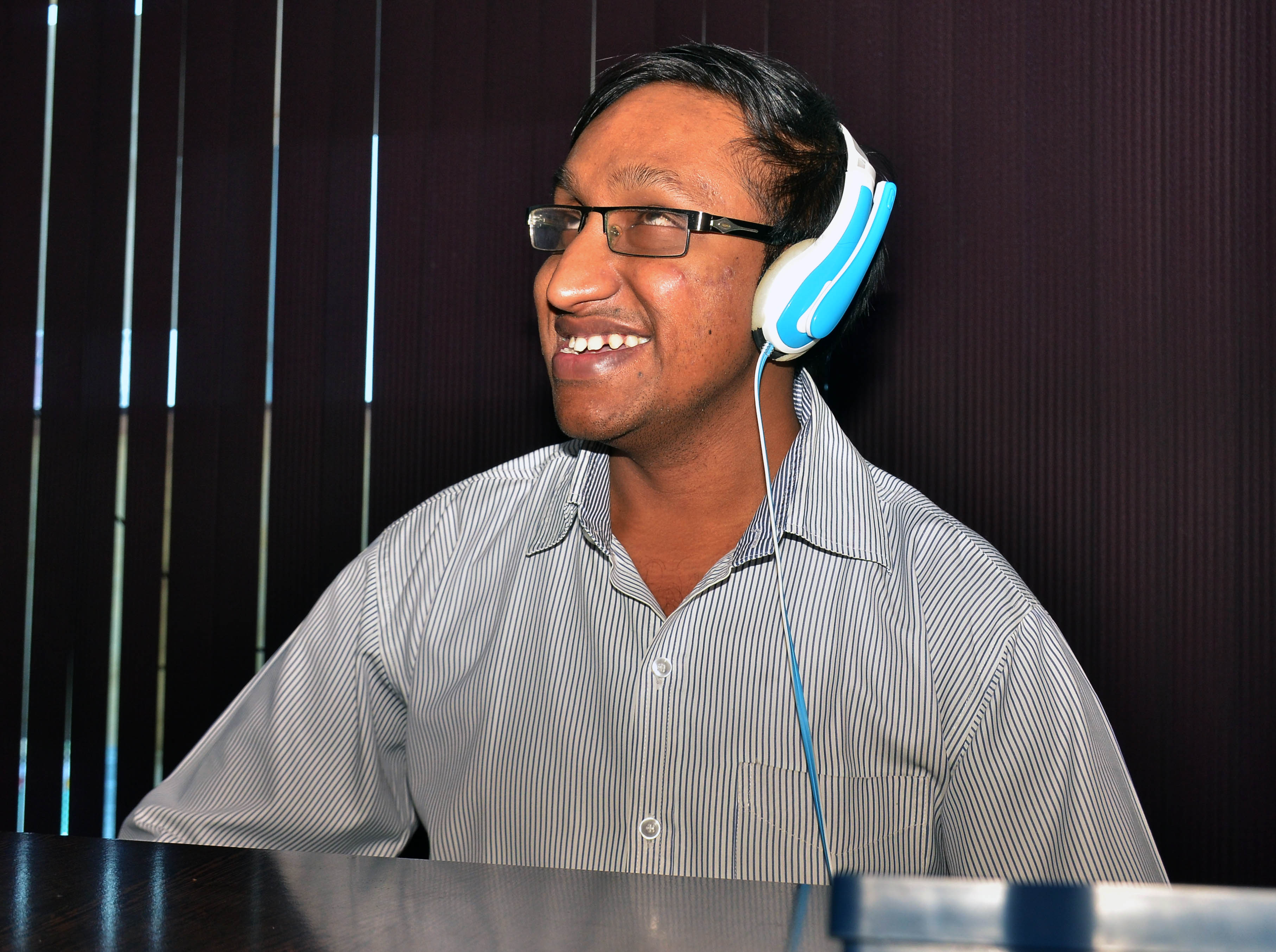Ashok Dhoot: Carving A Story For Himself And Brand For Rajasthan

Ashok Dhoot: Carving A Story For Himself And Brand For Rajasthan
A force to reckon with in the stone industry, Ashok Dhoot’s journey to global recognition has all the stuff that makes big business leaders. Hailing from a well-reputed business family in the Nawacity town of Nagaur district, Dhoot wanted freedom to pursue his creativity early in life. But belonging to a joint family whose business interests spanned from stone mining, salt to agri commodities, it was not easy for him to break free until 1989.
After graduating from the Commerce College in Jaipur in 1975, Dhoot started an abrasive factory. But in 1983, he gave up running the business for his younger brother as he wanted to be associated with stone industry. Mining was one of the flourishing family businesses, but there again he wanted to do something new and asked his grandfather to allow him freedom.
After securing his nod, briefly he dabbled with stone trading business to generate some income as he didn’t take any money from his grandfather. Here also he tasted success by achieving a turnover of Rs 60 lakh in the very first year. But that was not his true calling.
“Like, behind every successful man is a woman, I owe my achievements to my wife. It is she who sowed the seeds of starting a stone handicraft business and today it has brought glory and recognition,” says Dhoot.
In 1993, Dhoot started the stone carving business along with his wife who did the conceptualization and designing. At that time, a handicraft exhibition was being organized in Delhi in the name of Living Splendour.
“We put up a small stall in the exhibition and showcased our handicrafts. All the handicrafts went off the shelves in a jiffy. Then we realized that the products have a big potential and there is a large consumer segment for these items,” recalls Dhoot.
Since then, there has been no looking back for Dhoot Sangmermer, the name that everybody in the stone industry knows. As the business was being expanded, Dhoot also set up a factory in 2002.
“Before the factory came up, we used to give orders to artisans and they would make the products at their homes and deliver us. But as the business started finding traction with the customers, we wanted to make it more organized and put up a factory,” added Dhoot.
By then Dhoot knew the market very well and the business was doing pretty well. As orders kept coming, it was difficult to meet the demand. It’s not a mass produced business. But during his visits to exhibitions in many parts of the world, he gained an in-depth understanding of the technology being used in the advanced economies to deliver large orders in a short time.
“I started realizing that technology will be the future of the industry because of two reasons. First, it would be difficult to expand the business if we don’t deliver products at a quicker time. Artisans can only do so much. Secondly, the availability of artisans was becoming scarce by the day as graduates would not take up stone carving as a career option. The solution for both was technology. That motivated me to import computerized machines like CNC. The machine could do the work in two hours which the artisans would have taken 7-days. That’s why we bought CNC and started using in 2007,” explains Dhoot.
While the flooring and mining segments of the stone industry is majorly mechanized, it is difficult to bring in the same level of mechanization into the stone carving industry. Dhoot says the machines are all imported and very costly. Also, the machines used for carving have a bigger range to meet needs of various products.
Today, Dhoot Sangmermer’s handicraft segment has become the main line of business, bigger than mining and flooring verticals. But Dhoot says the projects business also growing faster and there is so much of demand for such projects in India that they are now not dependant on the global markets.
“Exports used to contribute 50% to our business about 3-4 years ago. But now the export component is only 10%. There is an overall decline in exports in the past three years and the stone segment has also been impacted,” says Dhoot.
But the group’s projects business is also growing faster. The lobby in the ITC Rajputana Hotel Jaipur is one of the glaring examples of this project business although Dhoot said they have done work in global markets such as Lebanon where they worked for a 7-star hotel. “We have already worked for 25 hotel projects in the country and the demand is there always. But the sector has its own limitations with regard to the availability and supply of stone in addition to the requirement of artisans,” adds Dhoot.
He says anybody can invest Rs 100 core and set up a stone unit but it is difficult to run a business that involves lot of creating thinking and passion. “There is a lot of creativity involved in the business. Without a creative bent of mind, it is hard to make a name in the industry. I personally look at the products and projects because I can easily understand the shortcomings. If the statue of a European woman has to be made, the contours of the face should look like that, not from any other regions. That’s where the challenge is. Anybody and everybody cannot do it,” adds Dhoot.
Dhoot is now supported by his 32-year-old son Raghav who is looking after marketing and exports. But Dhoot says, he continues to be involved with the manufacturing as it a very specialized field. With regard to the popularity of stone from Rajasthan, Dhoot says the industry has been growing as mandis such as Rajnagar, Udaipur, Chittorgarh, Kishangarsh mandi have come up since 1970 offering alternatives to Makrana.
But Makrana has given Rajasthan an enduring identity and recognition. The world famous stones from Makrana were used to build the Taj Mahal, Victoria Memorial of Kolkata, Birla Temple of Jaipur. Dhoot said the name of the Makrana traces a unique origin. “About 1800 artisans belonging to Makran from Iran came to build Taj Mahal. The Moghul emperor Shahjahan sent them to Rajasthan to mine the marbles and since then the place has been named as Makrana,” adds Dhoot.
Dhoot is the vice-chairman of the apex body of stone industry Centre for Development of Stones (CDOS) in Rajasthan and president of Jaipur Chamber of Commerce and Industry. He has been an influential voice of the sector since a long time.





